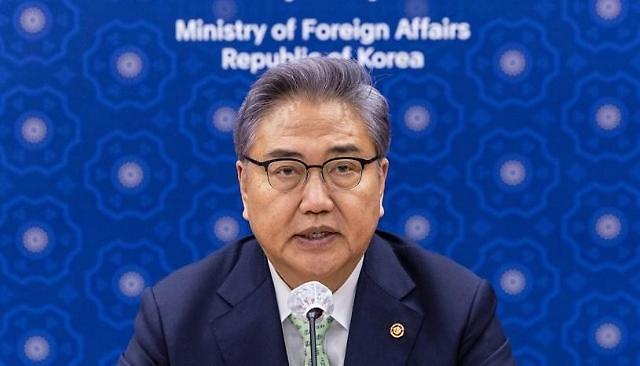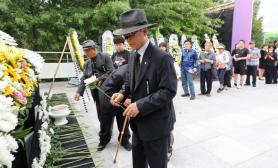
[Courtesy of the MInistry of Foreign Affairs]
Ties between the two Asian neighbors have been in the doldrums for decades, with South Korea insisting that Japan should apologize and make amends for abuses during its colonial rule. In particular, Seoul wants Tokyo to address the issue of women forced to work in Japanese wartime military brothels. South Korean civic movement groups demand a sincere apology from the Japanese government for their wartime atrocities.
In October 2018, South Korea's highest court upheld a 2013 ruling that ordered Japan's Nippon Steel & Sumitomo Metal Corp. to pay 100 million won each to four Korean victims. Japan has insisted colonial-era issues were settled in a 1965 agreement that restored diplomatic ties with the payment of $500 million. However, supreme court justices ruled that they cannot accept the Japanese court's ruling because it was based on the premise that forced labor during Japan's colonial rule was legitimate.
After the Supreme Court's ruling, Japan took retaliatory steps in 2019 to regulate exports of three key semiconductor materials to South Korea in an effort to hamper South Korea's economic growth based on exports of semiconductors, cars, and electronics. Tokyo also removed its neighboring country from a "white list" of trusted trading partners. South Korea hit back with similar steps and decided to file a lawsuit against Japan with the World Trade Organization.
The South Korean government's announcement on March 6 overturned the Supreme Court's ruling by assigning the state-operated FOMO to become the third-party compensator who would pay compensations and delayed interests. During a press conference at the Ministry of Foreign Affairs building, Foreign Affairs Minister Park Jin said that "based on the close and friendly cooperation relationship that has been built between the two countries since the normalization of diplomatic relations in 1965, the government has the will to develop future-oriented, higher-level South Korean-Japanese relations."
He also added that "if other pending lawsuits related to forced labor are confirmed in favor of the plaintiffs, the foundation will also pay the compensation and delayed interest to them." Additionally, Park explained that "the foundation plans to actively pursue measures to further solidify and expand commemoration, education, investigation, and research projects to carry forward the pain and suffering of victims of forced mobilization to future generations."
Regarding the foundation's funding, Park said, "we will secure it through voluntary contributions from the private sector and will further expand available resources related to the foundation's mission and operations." However, the participation of Japanese defendant companies remains uncertain.
Park hoped that "the government will inherit the 'Korean-Japanese Partnership Declaration for the 21st Century' announced by the two countries during the Kim Dae-jung-Obuchi Joint Declaration in October 1998 and work together to overcome past unfortunate history and develop future-oriented relations based on reconciliation and cooperation for mutual prosperity and peace.
Copyright ⓒ Aju Press All rights reserved.




